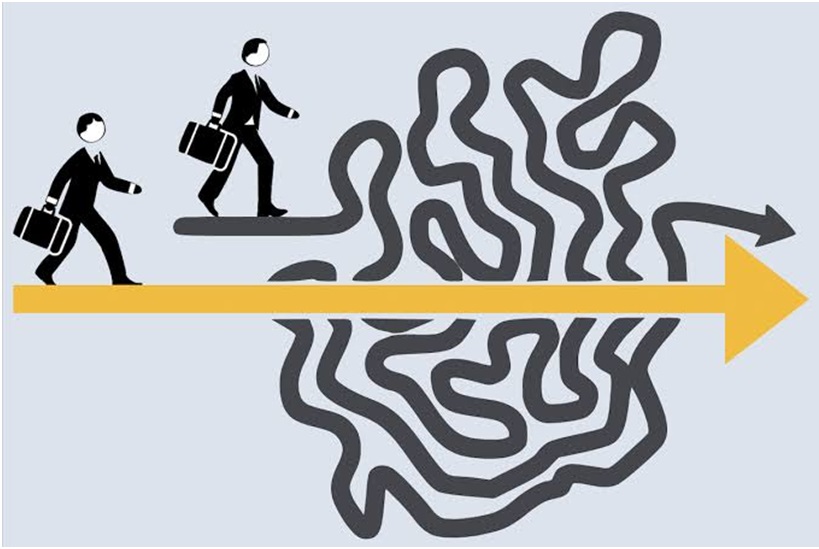4 Things You Should Know About Heuristics In Marketing

Heuristics are cognitive shortcuts that help to simplify the decision-making process, especially under conditions of uncertainty. Often people tend to deploy cognitive biases to make quick decisions. Hence, understanding heuristics can help marketers to shape their marketing efforts and bring better ROIs. Furthermore, integrating heuristics practices in marketing enables the stakeholders to influence the customer’s behavior.
The buying process typically practiced by a consumer can be divided into five phases. It includes the attention phase, interest phase, consideration phase, decision phase, and action phase. In the consideration phase, marketers use nudges, build on the concept of heuristics, to influence customer’s decisions. It is done indirectly through suggestions and reinforcements. Nudges help communicate marketing messages that appeal to the psychology of the target customers and encourage desired behavior.
Hence, heuristics involves designing choices that highly appeal to making decisions, thus making them more accessible. Heuristics is a part of cognitive psychology and behavioral science. When employed correctly in marketing, it can help to ease the customer’s doubt during the purchase journey. In addition, it can effectively address their pain points and include suitable call-to-action messages that will enable you to push them down the sales funnel. As a result, heuristics can help to maximize sales, increase conversions, and optimize productivity. Here are few essential things you should know about Heuristics in marketing.
Types Of Heuristics
There are several different heuristics, namely the availability heuristic, the representativeness heuristic, and the affect heuristic.
- Availability Heuristic: It refers to the judgments people make about the likelihood of an event based on information that comes to mind quickly. While making decisions, people inadvertently tend to rely on prior knowledge they possess about the concerned event. Based on the information that immediately hits the mind, people make decisions. Two biases emanate from the availability heuristic, i.e., ease of recall and retrievability. Marketers often use an availability heuristic for marketing the product by including information that supports processing fluency. It allows them to associate the brand with something that appeals to them. It subjects users to a product/brand, enabling them to register it on an emotional level. Hence, the availability heuristic is used for product/brand recall in marketing.
- Affect Heuristic: The affect heuristic involves how one feels and subsequently thinks. Under its influence, people make decisions based on their current emotions. In brand messaging and marketing, marketers use emotional incentives to reduce the time and cognitive effort necessary to make decisions. The brands try to elicit a positive emotional response that stimulates the target audience to make immediate decisions in favor of the brand.
- Representative Heuristics: When making judgments about an event’s probability under uncertainty, people tend to force it to match their existing beliefs. They try to define a particular event by identifying certain similarities with a current event. Hence, they make biased decisions by comparing an event to a similar occurrence instead of using accurate statistics or knowledge. In marketing, companies try to categorize the brand under a preferred stereotype to optimize the chances of purchasing the product.
Why do Customers use Heuristics?
Heuristics are mental shortcuts that customers use in problem-solving and decision-making. It enables them to cope with the availability of a vast amount of information and speed up the process of decision-making. Due to various options for a single product, customers tend to use these cognitive biases and shortcuts to simplify things and save themselves from spending more time analyzing every detail. Hence, customers deploy heuristics to navigate various product options and make the most feasible and appropriate choice.
How Do Heuristics Lead To Bias?
Heuristics often lead to an error in judgment. People tend to overlook relevant information and create stereotyped categorizations based on their subjective experiences. Heuristics can contribute to stereotypes and prejudice. It leads to people making hasty decisions about issues that are more complicated. It can be effective for making immediate judgments but can also result in irrational or inaccurate conclusions.
Benefits Of Heuristics In Marketing
Marketers can use heuristics to their marketing advantage. It can inspire consumer confidence, and when used rightly, it can enable them to choose your brand in the competitive market quickly. When purchasing a product, the customer’s decision is influenced by a variety of factors. Each customer brings their own experiences, attitudes, and pre-conceived notions with them. Ethical use of heuristics, without exploiting the biases or manipulating the decision-making process employed by the customers, can enable the stakeholders to drive brand loyalty. Ethical use of heuristics can strengthen consumers’ resolve and arm them with adequate agency, willpower, and knowledge required to make moral choices independently. It can instill confidence in the customers, rightly tap on their demands, and optimize sales and productivity.
To Conclude:
Marketers can use heuristics in the appropriate consumer influencing strategy. Heuristics can help to stimulate purchases and increase sales. It allows them to indirectly control the customer’s behavior and persuade them ethically to make the desired action. It enables them to engage the consumers with your product, creates a stimulus to create a positive effect towards the brand, and ultimately improves conversion rates.